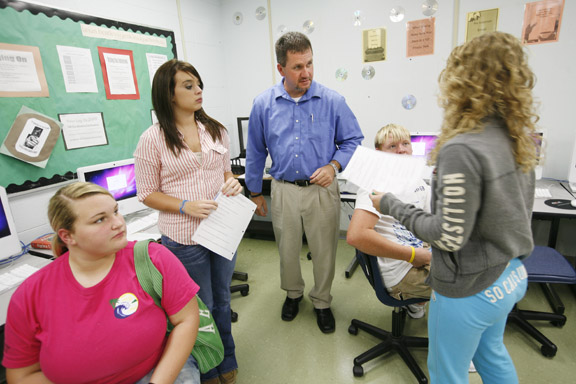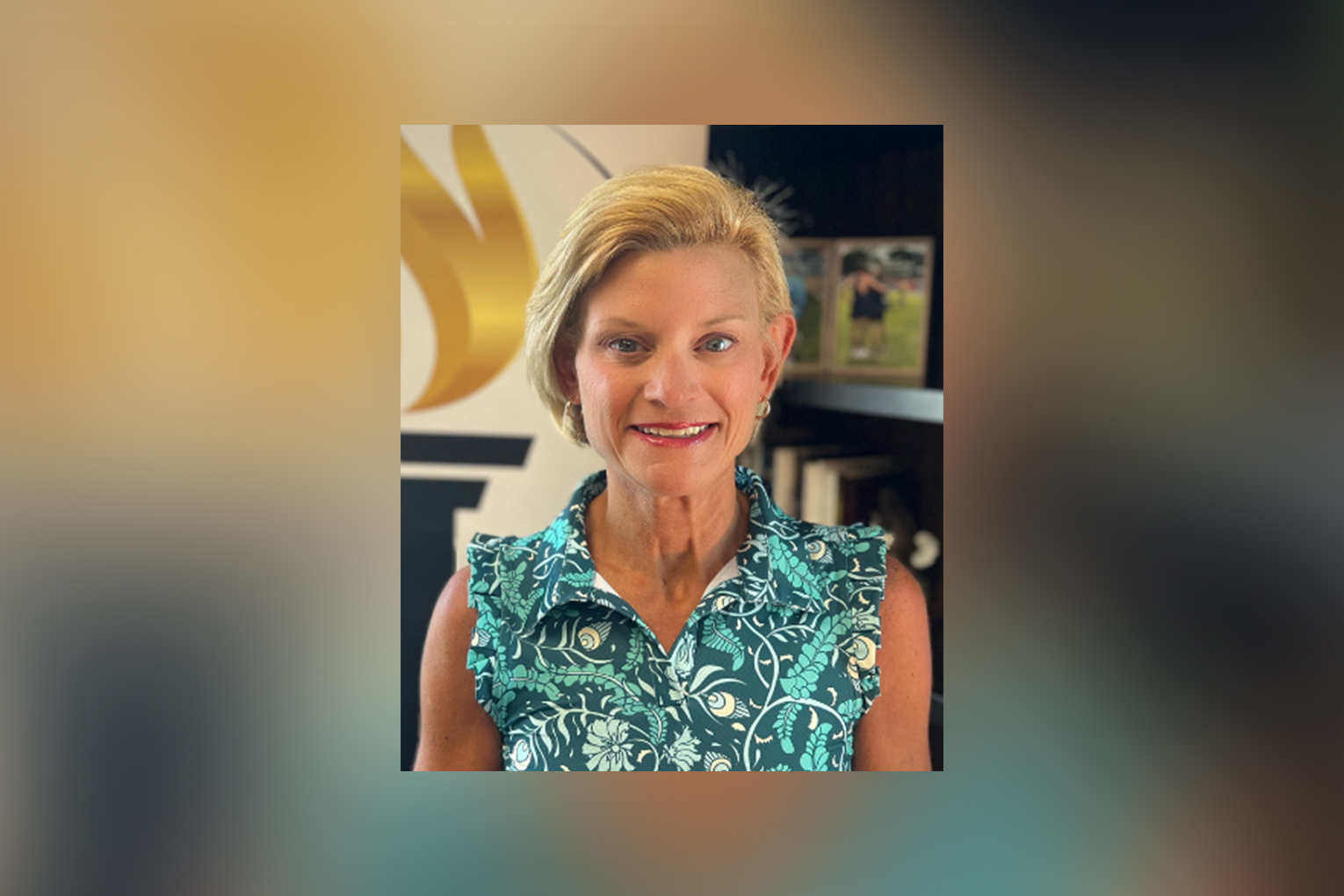
Mathematics teacher Joe Colwell talks with freshmen Tiffany Ramey, Baylee Rose, Jordan Bentley and Charity Niece during Algebra 1 class at Jenkins Middle High School (Jenkins Ind.) Sept. 2, 2010. The hybrid class is taught half in the classroom and half through Kentucky Virtual Schools. Photo by Amy Wallot
By Susan Riddell
susan.riddell@education.ky.gov
There are classes taught face-to-face and classes taught online. When you combine them, the result equals a hybrid class, a growing trend in state classrooms. What was a variable three years ago is becoming a constant thanks to its success. While hybrid learning can be used in any subject, Kentucky has a handful of hybrid algebra classes that are high-quality alternatives to Algebra I taught in a traditional classroom or online.
“The students prefer the mix of the class,” said Joe Colwell, a mathematics teacher at Jenkins High School (Jenkins Independent). “They don’t like when it’s all text or all lab. Having the mixture of the two gives them some ownership, and they go for that. I like the hybrid class, too. It’s a tool. It’s not about pass or fail. It’s about learning.”
Fairview High School (Fairview Independent) teacher Laura Callaway agreed that students are actively engaged from both perspectives. Algebra I students were online approximately twice each week.
“During this time, students worked independently as they completed each lesson, using a notes guide to record key concepts, examples and individual questions,” Callaway said.
After each lesson, students completed either an online homework assignment or an exit slip, allowing the teacher to formatively assess students’ understanding. The following class day, the teacher activated prior knowledge from the previous day’s lesson through a ‘bell ringer’ or other activity.
Callaway added that students can develop independent -learning skills as they use the self-paced online algebra lessons.
“Developing the skill to be a self-directed learner is invaluable to today’s mathematics student. The hybrid course achieves an ideal balance between online instruction and classroom support.”
The variety in the class helps students understand concepts they otherwise might miss out on, Colwell said.
“I like that it gives me some choices, and it gives the kids some choices,” Colwell said. “When kids have different learning styles, this reaches them one way or the other. I can refer to text, I can work one-on-one; it really helps that the two methods complement each other.”
All hybrid algebra teachers receive professional development through the Collaborative for Teaching and Learning (CTL) prior to working with students.
Both Colwell and Callaway spent three days in Louisville with the CTL and trained online for six weeks in the summer. They also participated in monthly online discussions and in-school visits.
“The training was very beneficial, as it both aided in preparation to teach the hybrid course as well as provided new strategies for actively engaging students through online lessons as well as in the classroom,” Callaway said.
Colwell noted that hybrid algebra may not need to adjust much with the new mathematics standards because it’s already so thorough. “If you put the time in, you can use it full-blown,” he said. “You could use this without the text. The online labs are that complete.”
“At first, it is difficult to give up class time in order to allow students this opportunity,” Callaway added. “However, as students become accustomed to the online environment, the teacher can observe growth in students’ abilities to think independently and become self-directed learners. These are valuable skills for students today, especially with the crucial role technology plays in both secondary and postsecondary education systems.”
MORE INFO…
Joe Colwell, joe.colwell@jenkins.kyschools.us, (606) 832-2184
Laura Callaway, laura.callaway@fairview.kyschools.us, (606) 324-9226




Leave A Comment